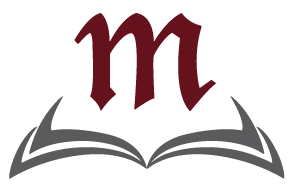Sometimes it’s the little things that help bring back a sense of normalcy. At least, that seems to be the case for Calvary Elementary teacher Abigail Peake who teaches a kindergarten/first grade split class.
Two of those “little things” would be guinea pigs Rosie and Posie, Peake’s two classroom pets.
“The kids hold them, and pet them, and feed them, and that’s definitely something you can’t do on Chromebooks,” Peake said. “The kids are so excited about those things -- it's those little extra things you can throw in to get them excited about coming to school and learning [...] We’ve been able to have fun this year while we were learning. Last year was so much harder to make things fun virtually.”
During the past two school years, those types of in-person experiences have been relatively absent due to time spent operating on Distance-Learning. Although students have experienced a more typical school experience this year, Peake explained it came with a learning curve after so much time away.
“We’ve had to learn how to do school,” she said. “When students came to us this year, they didn’t know how to sit in their seats or how to stand in a line because they didn’t have to do it before. Even with the first-graders, it was so inconsistent last year with being in school and out of school. So, at the beginning of this year we spent a lot of time working on procedures.
“Much of this year has just been about learning appropriate things for school, like how to interact with peers and how to talk to them and what friends do with each other. There are some students that are shy and reserved and you can tell they’re still trying to get used to all of these other people around them.”
While Peake noted that students have been improving all year, she added that some things have taken more time than usual to develop.
“With procedures it took everyone longer to learn those things,” she said, adding that she’s also had to spend more time catching up on academic skills than most years.
“We did have a lot more students that were not competent with letters and letter sounds than I typically have. So, we spent a big chunk of the beginning of the year familiarizing ourselves with letters. And now we review them every morning and they can just rattle them off.”
Peake credits her co-workers with helping students improve throughout the year.
“I’ve got a lot of awesome instructional assistants that come in and help. While I may be teaching a group that’s moving on, the instructional assistant will pull one or two kids who might need some extra reinforcement on something. This year we’re targeting certain kids and getting them back to where they need to be.”
During the time the district spent operating on Distance-Learning, Peake says teaching literacy skills to emerging readers was incredibly difficult.
“It was the hardest thing I think I’ve done as far as teaching, just because it was so hard for the little ones to sit there and look at a screen all day,” she said. “They grew last year but not like they would have if they’d been in the classroom.”
For her, having students in the classroom has been an important part of the growth she’s seen this year, sometimes in unexpected ways. For example, she related an anecdote about attempting to teach her students the vocabulary word “odor” which several mistook for “older.” Then, as she tried to clarify, others misheard the word as “ogre”.
“So, we learned three new vocabulary words instead of one,” Peake said with a laugh. “It was definitely a comical moment. [...] Last year, we may not have been able to spend as much time explaining the differences in those terms.”
This school year has also provided the opportunity for her class to experience a host of other things not possible during Distance-Learning. The class had a pumpkin in the room which they observed as it decayed, they hatched chicks, and students have had class jobs such as class veterinarian for the week who took care of the two guinea pigs.
But for Peake, the highlight of the school year has been the improvement she’s seen from her students.
“My favorite part has been seeing where we started and how kids that came to me and didn’t know how to write their name are now reading -- competently reading and talking about what they’re reading and they’re excited about reading,” she said. “It’s been incredible just seeing their tremendous growth.”
And it’s that type of growth she wants parents to be aware of.
"I think parents should know their kids are resilient. They’ve really worked so hard and they've made huge gains and grown so much. Kids are going to learn.”

